This week I felt curious about…
Dyslexia
I was born September 29Th 1971 and grew up in Marshfield, Massachusetts. When I was in 1st and 2nd grade, I spent a lot of time in the front of the classroom facing the wall.
You may know this kid. You might be this kid. I was in 1st grade in 1977. I was lucky enough to have parents who were involved and took action for my well-being. They were saddened by the way my teacher dealt with me at school. Children facing the wall as punishment for being a “disruption in class”!
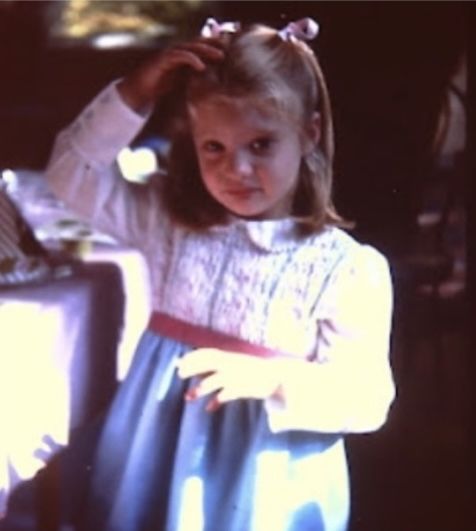
Picture of me as a child scratching my head
They took me to a well-known child psychologist, Dr. Reiver in Cohasset, MA to find out why I was having behavioral issues.
When I was 6 years old, he diagnosed me with ADHD and Dyslexia and said I needed to stop eating sugar and food coloring.
My parents decided against the ADHD medication, Ritalin.
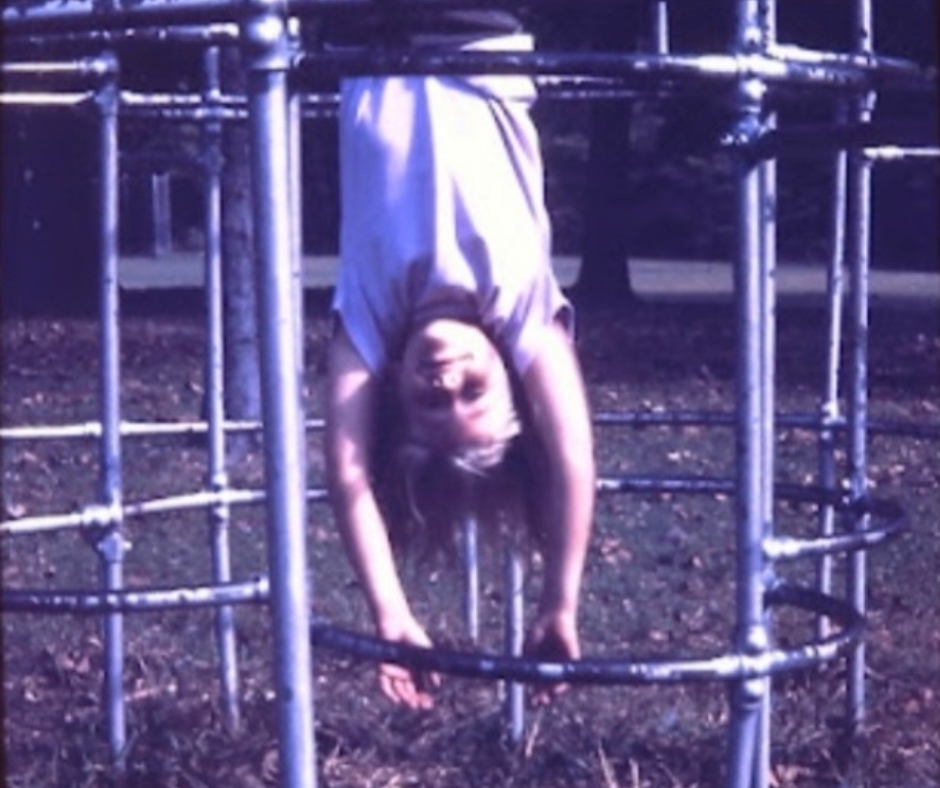
Picture of me as a child upside down
I spent the majority of my life thinking I was stupid.
Math doesn’t come easily to me, I’m stupid.
Grammar doesn’t come easily to me, I’m stupid.
Spelling doesn’t come easily to me, I’m stupid.

Picture of me and my mom
I remember going into my dad’s office when I was 4 or 5 years old. He was a big shot.
Vice President of John Hancock Insurance in the Advertising Department. 52nd floor, an office with all windows.
Me, my mom and my brother went into my dad’s office for pictures one day. It was some sort of family day.
A few of my dad's co-workers came into his office, and my dad proudly introduced us. One of his co-workers said, “Well, hello there, what is your name?”
“Elizabeth Buckeridge,” I said.
The man said, “Well, how do you spell that?”
My dad said, “How do you spell Buck and how do you spell Bridge?”
I just stood there, I’m around 5 years old and nobody knows I have dyslexia yet.
I just stood there, ashamed. I still remember the feeling of being a disappointment.
For the next 45 years, I felt like a disappointment because I’m a slow learner.
Fast forward, I am here to say, I love the phone feature that spells for me!

Picture of my dad on the camera.
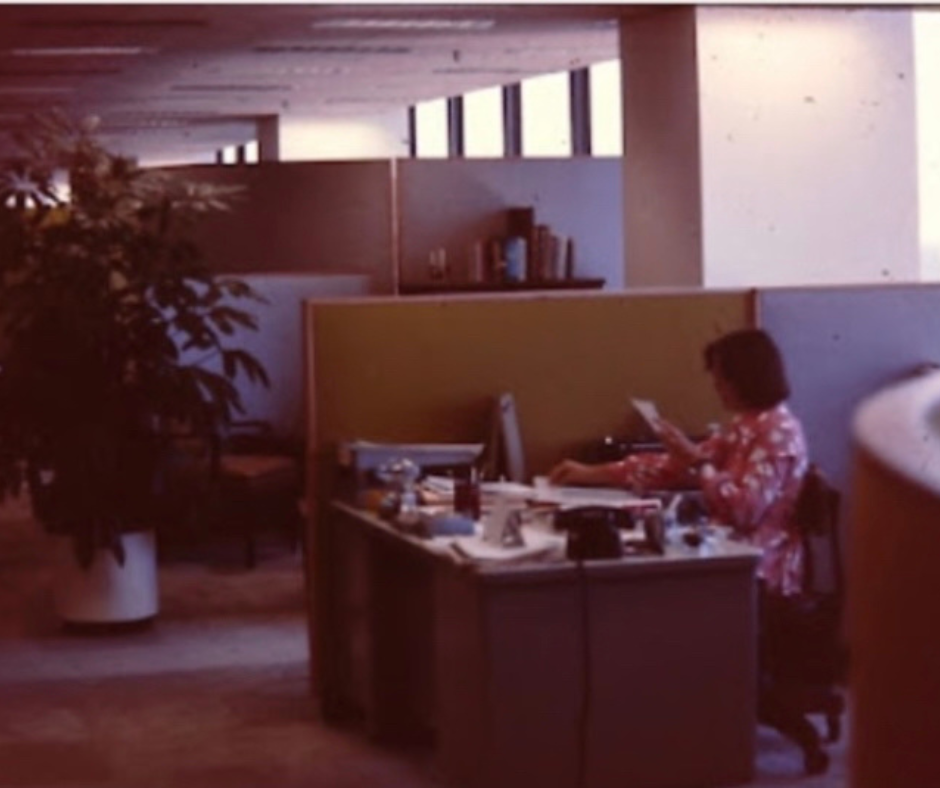
Picture of my dad's office
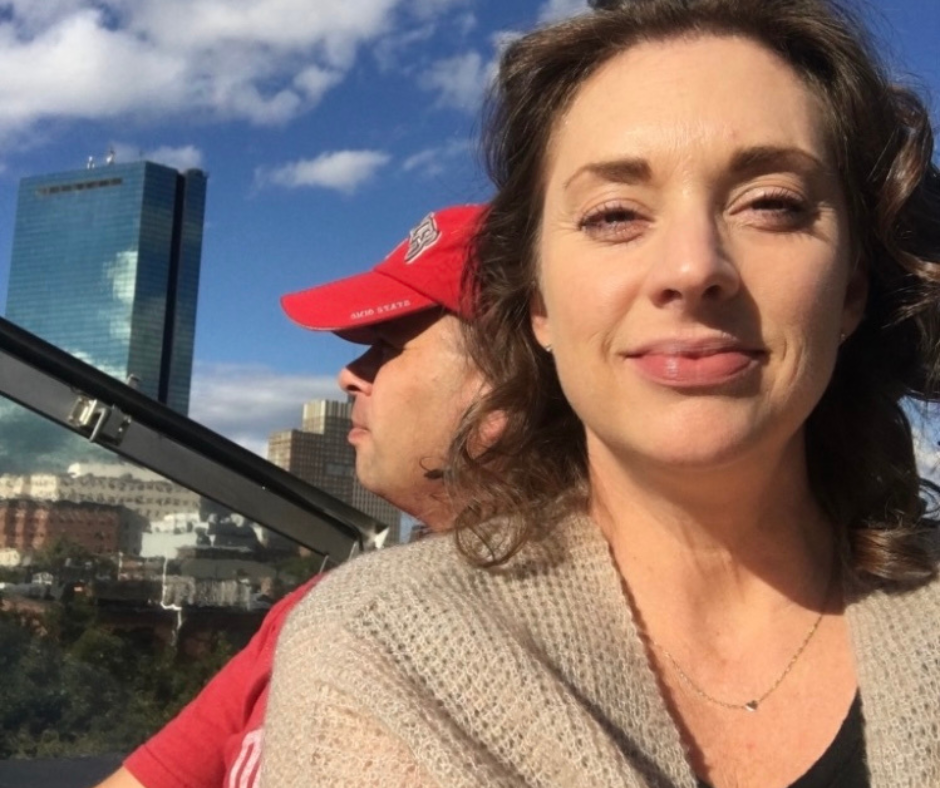
Picture of me and my fiancé, Brad, with the John Hancock building in the background
To counter my lackluster academic abilities, my parents sent me to art classes.
I took to drawing and painting and my parents leaned in heavily to my interest. I was like a fish to water.
I took classes with Mrs. Landsalada in her home starting at 5 years old, then Mr. Robinson at the GAR hall starting at 7 years old, then Saturdays at Mass Art starting at 14 years old, then high school art class with Mr. Boczanowski, then a 2-year art program at Massasoit with the teachers from Mass Art.

Picture of our dining room with the tissue paper painting I did when I was 8
The last art teacher I had was Luke Randall, I started classes with him when I was 39.
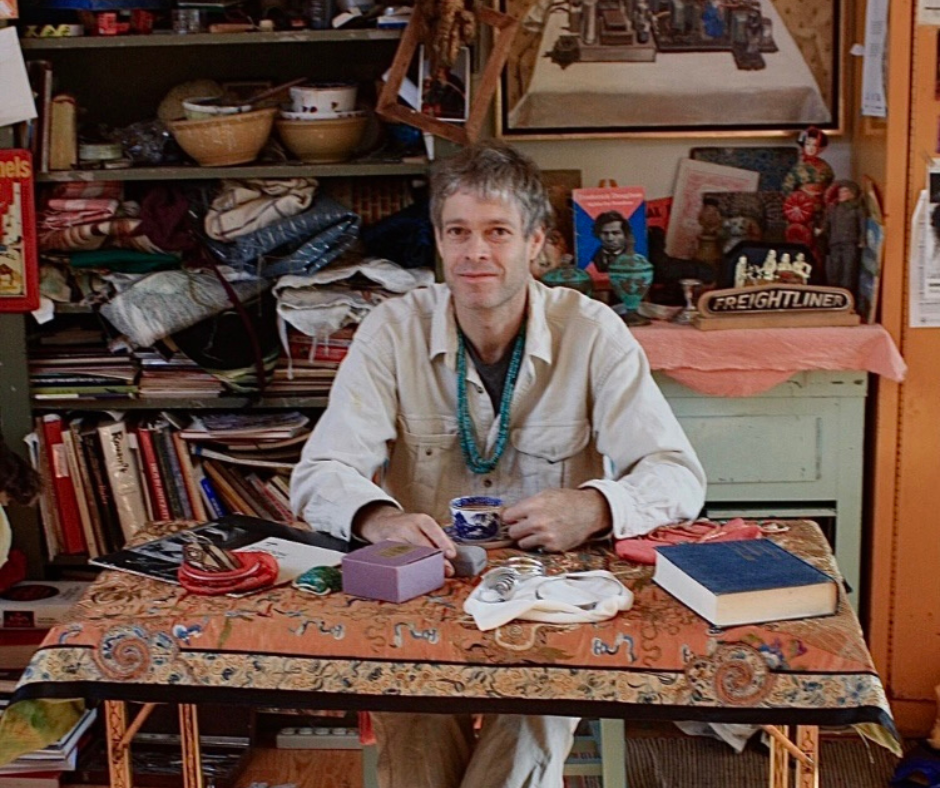
Picture of my art teacher Luke
When I was a kid, I would spend endless hours drawing and painting at home.
After my 2-year art school, I moved to Arlington, Texas outside of Dallas for 4 years.
I was going to take a “gap year” but never went back to school until I was 35 years old and went to massage school.
Massage has been my main art form for the last 16 years. Every once in a while, I will go to an open life drawing class at the Newport Art Museum.

The first week I lived in Arlington, Texas in September 1992
I have discovered I prefer informal learning as opposed to formal learning.
I learn best by listening to books while highlighting the interesting parts while I read along on a paper book version. Or reading at my own pace.
My strength is interpersonal connection and talking to people.
I prefer to be one-on-one or in a small group in the same room.
My imagination works best when I’m alone.
I read recently in the book The Dyslexic Advantage by Brock and Fernette Eide that my ADHD and my dyslexia are a gift.
I’m slowly piecing out what that might mean. I have a ton of energy and an active imagination. I’m slowly starting to celebrate my gifts.
The little girl who was put in the front of the class and felt like a disappointment because she was super social and couldn’t spell has grown up to be full of energy and finds helping people and making art her purpose in life.
Way to go, me!
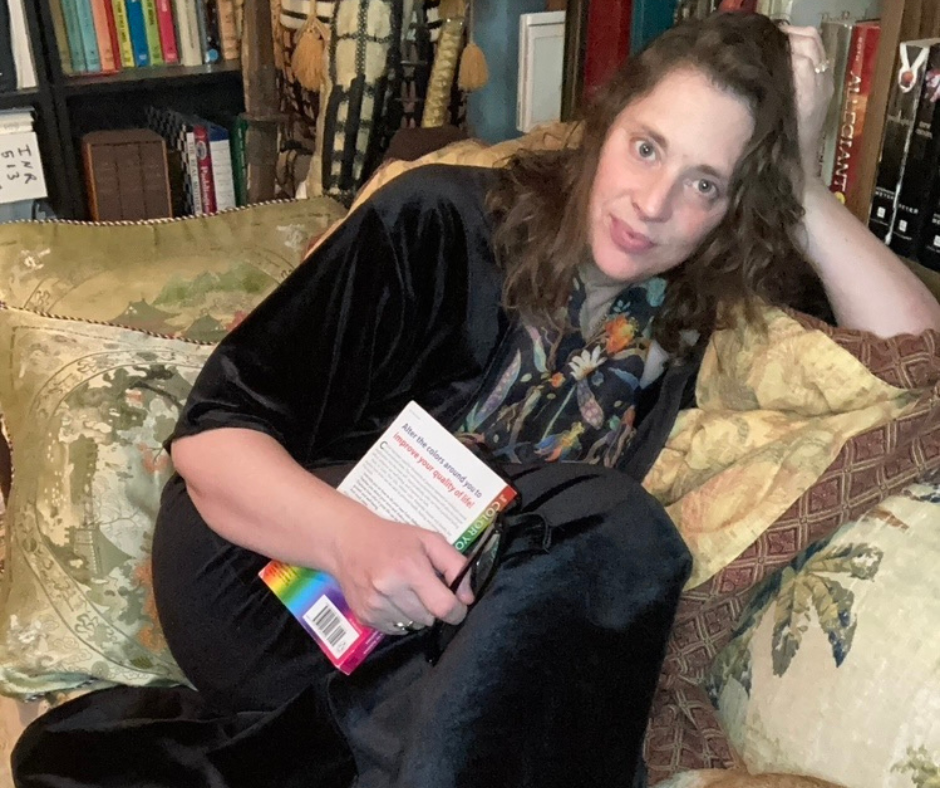
Picture of me on the couch with a book
Do you know anyone who has been diagnosed with ADHD and Dyslexia? Are they artists too?
The 1970s was the start of teachers teaching kids in different ways. Audible, kinesthetic, visual, and more.
Today, I am listening to Adam Grant's book, Hidden Potential. He suggests all of those teaching disciplines are interesting, but what truly works is being okay with the discomfort of learning.
Whatever subject comes naturally or not; it’s doing the work that works.
Hmmm. So, this means I can’t just say, “Well, I’m dyslexic so I get a pass.” Ugh.
Adam Grant also says writing, even 15 minutes a day, is a strong way to learn.
The most successful way to learn is total immersion, no matter how big a fool you look.
Adam Grant says, “To cope with discomfort, intensify it… Instead of trying to reduce your mistakes, try to increase them.”
My job is to love the little 5-year-old who is so embarrassed for not knowing how to spell her own name.
The original embarrassment of not knowing how to spell my name in my dad's office was amplified in kindergarten and then throughout school.
My job now is to head right for embarrassment.
So, I’m writing. I’m an example of a dyslexic writer.
The 5-year-old who wants to take the driver's seat on a daily basis has been asked to get in the way back. Along for the ride, but not driving.
I’m here to show up, damn the embarrassment of all of my mistakes.
I’m here to tell you all about them, so I can grow.
Cross your fingers that we can all grow. Buckle up!
Today I Felt Dyslexic.
I leaned into the discomfort and did one small action towards my goal.
It was scary and difficult but that’s ok.
Time is on our side.
Much love,
Liz